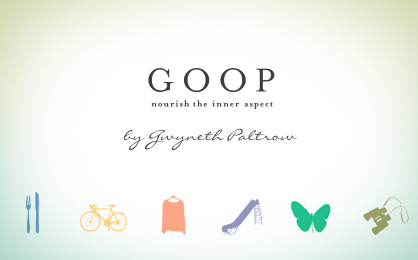We see it on a regular basis. Cosmetic companies promoting their new “clinically” proven age-altering formulas, health corporations promoting new miracle diets, food brands introducing new products with outrageous health benefits. False advertising is a hazard in the world of consumerism. Many companies turn to the use of false claims and promises in order to generate higher profit, deliberately betraying the trust of consumers.
A current example of this is Gwyneth Paltrow’s online company “Goop”, dedicated to creating women’s health and wellness products. Products range from “crystal therapy”, claimed to transform one’s energy “in a manner essential for good health”, to energy stickers, suggested to be worn to “rebalance the energy frequency in our bodies”. The goal is to empower women and enhance women’s autonomy, in encouraging the improvement of their overall health and self-esteem. The problem is, the claims these products make have no medical backing. They will not live up to consumers expectations; it is scientifically impossible. Timothy Caulfield of The Globe and Mail challenges the company’s ethics in stating “This choice-enhancement shtick is a common tactic for those pushing unproven therapies and health products. But how does providing inaccurate and potentially harmful health advice enhance autonomy? On the contrary, misleading people about the facts reduces autonomy and erodes informed choice.”
Agencies such as the FDA and the FTC in the U.S. monitor ad campaigns and help correct misleading information projected by companies. Still, companies continue to misinform their consumers. This is because “the FDA lacks the resources and regulatory authority to effectively monitor false and misleading labeling practices.” Under the circumstances that a company advertises false information, they will receive a Warning Letter. More severe penalties are reserved for other violations.
The power advertisement holds over consumers is very strong and companies such as Goop abuse this power to further their success as a business. Paltrow’s case in particular is especially distasteful. Not only does her company target insecurities of women and self-image, but she is a popular celebrity whose influence is far-reaching. Lying to consumers for one’s own benefit is intolerable and eliminating such issues should be taken more seriously.
Goop, among other companies that mislead consumers, masks its goal to maximize profit with the idea that it is helping society. Milton Friedman’s article regarding business ethics touches on this tactic, stating that “In the present climate of opinion, with its widespread aversion to “capitalism”, “profits”, the “soulless corporation” and so on, this is one way for a corporation to generate goodwill as a by-product of expenditures that are entirely justified in its own self-interest.” While it may appear that the health of its customers is its number one priority, Goop’s sole aim is profit. Goop shows no morals or ethics in lying to customers and companies such as itself should not be able to thrive at the expense of the public.
word count: 376

